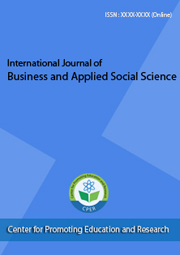current
Table of Contents
Articles
Author(s): Hannah Schlamann; Tammy Brandenberg; Professor Dr. Nicki Marquardt
Abstract:
For human beings, it is natural to conduct errors. Therefore, every company is confronted with erroneous actions that cannot be avoided. Several studies proved that managing errors and error consequences appropriately is indispensable. To ensure long-term benefits from errors, an organization needs to implement an error management culture (EMC). In this way, errors are collectively accepted and openly addressed. Research has been exploring how EMC results in increased performance. The current empirical study focuses on work motivation and informal workplace learning (IWL) that are assumed to mediate the relationship between EMC and performance. The purpose is to ex- plain this relationship with the help of both influencing factors. For this, an online survey was used to analyze the self-assessments of 186 employees from various companies and industries in Germany. The statistical results proved that companies with an EMC show elevated performance. Work motivation and IWL were found to partially mediate this relationship. More specifically, autonomous motivation, subsequent reflection as well as trial and application of own ideas were proven to be influencing factors. Building on the significant results, this study derives practical implications for organizations focusing on the design of an EMC while considering the three influencing factors. Future should dive deeper into the interaction between all these factors.






